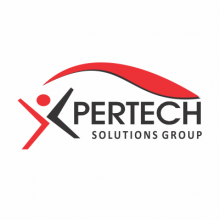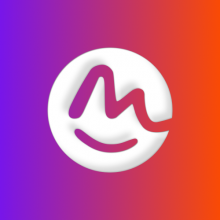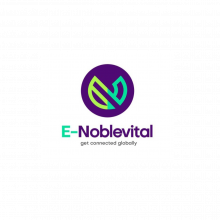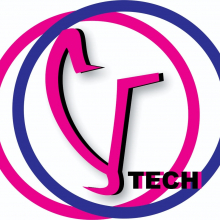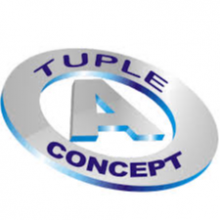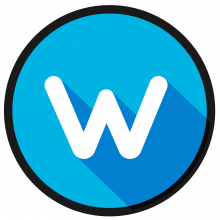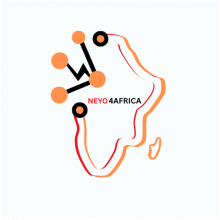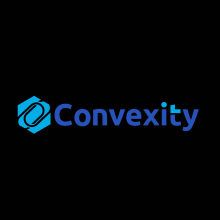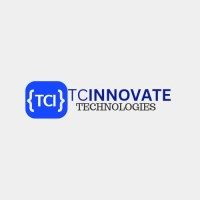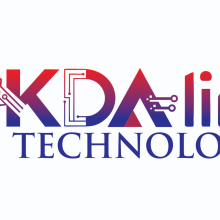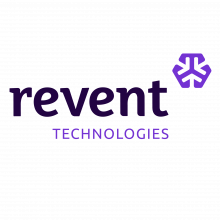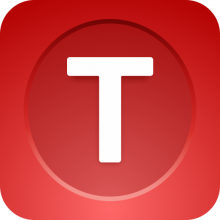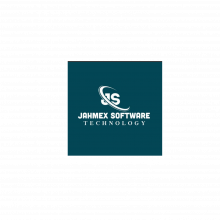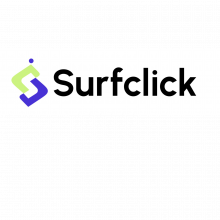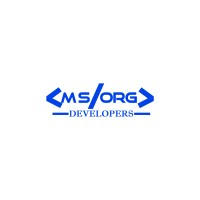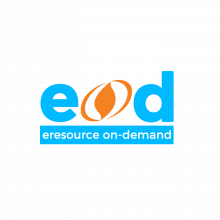
There are 25 Companies in Nigeria
that provide Enterprise App Modernization Services!
Nigeria’s ICT sector contributed 19.78% to the country’s GDP in 2024. The telecommunications segment accounts for the vast majority of this, at around $7.6 billion. Other important contributors are broadcasting, data center services, cloud, IT, and BPO. Nigeria’s combination of relatively stable governance, strategic location, and young and innovative population has made it an attractive destination for multinational companies.
Discover Top IT Companies in Nigeria specialized in Enterprise App Modernization and various programming languages like ASP.NET, C, C++, C#, Java, Perl, Python and more.
Enterprise App Modernization services involve updating and transforming legacy applications and systems to meet the evolving needs of businesses in a digital era. These services encompass a range of offerings such as application refactoring, cloud migration, technology upgrades, integration, and user interface redesign. Enterprise App Modernization services are closely related to software development, mobile app development, application testing, and mobile app marketing among others.
According to The New Stack, 54% of businesses that own an app, plan to modernize them within 6 to 12 months from the date these were launched.
Handpicked companies • No obligation to hire • 100% risk-free
Featured Companies in Nigeria
This month, the following Enterprise App Modernization companies managed to provide an outstanding service and support. It's worth taking a look.
Xpertech Solutions is one of the leading ICT and renewable energy conglomerate providing professional ICT and renewable energy services.
An Innovative IT service provider specialized in Software Development, Blockchain Development, Product Design, Artificial Intelligence, and Training.
One of Nigeria's fastest growing and leading software & MSP equipped with a strong foothold of innovative ideas, seasoned skills & ability to deliver
Explore Top Enterprise App Modernization Companies in Nigeria
Mobirevo is a Leading custom software development agency focused on web, mobile app development & saas application development.
We use technology to create undeniably brilliant work for companies with taste.
we deliver innovative tech solutions that drive online growth for businesses across Africa, Europe, Asia, Oceania, and America.
Vsasf Nig Ltd (Vsasf Tech) is a computer software and IT service provider company. We offer ICT Courses to individuals and organizations in Nigeria.
Tuplea ICT Concepts, a leading digital solutions agency in Ibadan, offers friendly ICT training online and onsite in web, software, design, and more.
Build with Nahara Technologies: Build right
We deliver innovative technology solutions that empower organizations and businesses around the world to transform, scale and achieve better outcomes.
turning ideas into tech solutions
Transforming Africa's Digital Future by making technology accessible to all, we evolved into a comprehensive digital solutions provider.
A blockchain and IT infrastructure and consultancy company that offers tailored services to enterprises and Government agencies .
Empowering Enterprises with Innovative IT Solutions
Computer training center where you learn tech skills like Digital Marketing, Web Design, UI/UX Design, Data Analytics and Software Engineering.
A leading software development company using the latest technologies and agile methodologies to drive digital transformation for businesses.
Explore limitless possibilities of Tech. Transforming ideas into reality with cutting-edge solutions for businesses!
providing software solution to companies and business by devloping custom software solutions, automation, AI, websites, apps etc
We provide bespoke and platform-based solutions to large, mid-size, and small businesses in Healthcare, Retail, Telecom, and other industries.
At JST, we're dedicated to transforming ideas into cutting-edge digital solutions. As a leading software development company.
Surfclick Innovations Limited is a technology solutions provider, dedicated to empowering businesses with cutting-edge digital solutions.
we create robust,secure and affordable website, as well as graphics design for small and large scale business owners around the world
All-in-one ERP Solution, Trusted by Millions. Best ERP Plan for Every Business Type and Size.
- 1
- 2
Filter Enterprise App Modernization Companies in Nigeria by Cities
Find the right tech company near you or from a specific city. Some of the best companies might be located in smaller cities.
Find more Enterprise App Modernization companies around the world
TechBehemoths is the world's most advanced and user-friendly platform to match IT Companies with real clients without hustle.
The ICT Industry in Nigeria : 2025 Report
Nigeria’s ICT sector contributed 19.78% to the country’s GDP in 2024. The telecommunications segment accounts for the vast majority of this, at around $7.6 billion. Other important contributors are broadcasting, data center services, cloud, IT, and BPO.
Nigeria’s combination of relatively stable governance, strategic location, and young and innovative population has made it an attractive destination for multinational companies. Several notable firms, such as Oracle, IBM, Microsoft, Cisco, HP, and SAP, have offices in Nairobi, and some have based their entire African operations from these offices.
Why You Should Work With Nigerian IT Companies
Digital service providers in the cloud and BPO markets are primarily involved in the provision, rather than the development, of services, whereas Nigerian firms are more prevalent in the fintech and e-commerce markets. The physical technology required for the delivery of digital services is typically imported, and it is not clear that Nigeria could produce these products more efficiently.
A key strength in the digital services market is the acceptance of mobile services. Any consumer solution entering the market would have to be mobile-compatible. Mobile healthcare services are expected to grow particularly rapidly as the sophistication of these offerings increases.
In addition, the CEO of Toniceli considers that one of the competitive advantages Nigerian IT companies have compared to those established in neighboring countries is the challenging conditions. Here in Nigeria, we're used to working in challenging and stressful environments. This gives us grit, especially when faced with challenging projects. It's just a part of our nature to face challenges headlong and not to back down.
What to Pay Attention to When Working With Nigerian IT Companies and Web Agencies
On the consumer side, it is vital that any proposed digital service offering be mobile-compatible due to the prevalence of mobile usage in Nigeria. Furthermore, smartphone penetration in the region is steadily increasing, thus increasing the sophistication of viable digital service offerings.
Given the acceptance of fintech by the Nigerian population, a possible route to entry in the consumer market is to acquire one of the many smaller fintech firms in the industry. This would resolve some of the primary barriers to entry, most specifically bureaucratic red tape and a lack of local knowledge.
On the corporate side, the most effective route to entry is likely through partnerships with smaller local resellers. This model is already popular in the Nigerian market. A key differentiating feature here will be how well the service adapts to the Nigerian market.
How Reliable Are Nigerian-based IT Companies?
Considered to be one of the biggest African IT hubs, Nigerian web agencies and IT companies compete only with Ethiopian ones in terms of reliability. As many foreign companies have already invested and thus developed the local IT infrastructure and industry overall, Nigerian IT companies find it easier than other neighboring countries to enter the global market and provide their services at accessible prices.
How Does the Nigerian IT Industry Relate to the Neighboring Countries?
Nigeria is actively trying to establish itself as a key ICT hub in the East African region. The country appears to be making good progress in this regard, helped by having a strong connectivity infrastructure and a young, innovative population. Despite this, the country currently faces considerable political uncertainty, and issues surrounding the transparency of tenders remain a major barrier to growth.
Although Nigeria’s score in the Global Innovation Index 2024 is not high in absolute terms, it ranks 113th in the world. This supports the conjecture that businesses, government, and consumers will be receptive to new technologies, as ICT has already had a substantial impact on the Nigerian economy.
The Business Environment in Nigeria
The CEO of Toniceli - a leading Nigerian IT company, Oluwayomi Olabanjo, states that the Nigerian business environment is growing rapidly. Most business environments are still very much clustered in the city of Lagos, but over the years, there's been an expansion in economic clusters in other cities. There had been challenges in infrastructure, policies, power, and access to professional training and education. However, things have been getting better over time, especially with the coalition of private and public enterprises addressing these challenges headlong. I would say the biggest factor we've had working for us in the Nigerian market is the availability of youthful talent and the increasing flow of foreign and local capital into the market.
What Makes Nigeria Attractive for International IT Companies?
Oluwayomi Olabanjo mentions on this topic that what makes it attractive is the abundant supply of youthful talent. However, unstable government policies, infrastructure, and power shortages are challenges, making it unattractive for international IT companies.
Yet, the Nigerian Communications Commission had been doing quite a lot with the startup bill and also with the establishment of public-private incubator programs within the country. I really do believe they should be given credit for this.
Lagos, Ibadan - Best Cities for Doing IT business in Nigeria
Lagos, because it has always been the economic hub of the country, hence the IT industry has found it quite easier to experience growth in that space.
Ibadan due to the fact that it is a fast-growing economic hub and also, and there's less capital expense in setting up and running a company here. - mentioned Oluwayomi Olabanjo.
What is Enterprise App Modernization and what are its benefits for your projects?
Enterprise App Modernization services involve updating and transforming legacy applications and systems to meet the evolving needs of businesses in a digital era. These services encompass a range of offerings such as application refactoring, cloud migration, technology upgrades, integration, and user interface redesign. Enterprise App Modernization services are closely related to software development, mobile app development, application testing, and mobile app marketing among others.
According to The New Stack, 54% of businesses that own an app, plan to modernize them within 6 to 12 months from the date these were launched.
Nonetheless, to modernize an app any company has two options: an in-house team, or looking for a specialized IT company. While the benefits of having an in-house development team that will handle this process are obvious, businesses can experience a series of benefits by partnering with a specialized IT company for their Enterprise App Modernization needs. Here are some key advantages:
- Enhanced Efficiency and Performance: Legacy systems often suffer from outdated technology, inefficiencies, and limitations. Enterprise App Modernization improves system performance, scalability, and reliability, enabling businesses to operate more efficiently and meet growing demands.
- Cost Savings: Modernizing legacy applications can lead to significant cost savings over time. It eliminates maintenance costs associated with outdated technologies, improves resource utilization, and enhances productivity, resulting in long-term cost efficiencies.
- Increased Agility and Innovation: Modernized applications leverage new technologies, such as cloud computing, microservices, and AI, fostering agility and innovation within the organization. It allows businesses to respond quickly to market changes, drive digital transformation initiatives, and stay ahead of competitors.
- Improved User Experience: Modernized applications often come with enhanced user interfaces, intuitive navigation, and improved functionality. This leads to a better user experience, higher user satisfaction, and increased productivity among employees and customers.
- Scalability and Integration: Modernized applications are designed to scale and seamlessly integrate with other systems and platforms. This allows businesses to adapt to changing demands, incorporate new features, and integrate with third-party applications and APIs more effectively.
When choosing an Enterprise App Modernization provider for a project, consider the following criteria:
- Expertise and Experience: Look for providers with extensive experience in modernizing enterprise applications and systems. Assess their track record, industry knowledge, and success stories to ensure they can effectively handle your specific modernization needs.
- Technology Stack and Skills: Evaluate the provider's proficiency in modern technologies and frameworks relevant to your project, such as cloud platforms, microservices, containerization, and API integration. They should possess the necessary skills to deliver robust and future-proof solutions.
- Project Management and Collaboration: Consider the provider's project management approach and communication practices. Look for a provider that values collaboration, ensures transparency, and keeps you involved in the modernization process.
- Security and Compliance: Verify that the provider follows stringent security practices and has a comprehensive understanding of data protection regulations. They should prioritize data security during the modernization process and address any compliance requirements specific to your industry.
TechBehemoths is a valuable resource for finding the best Enterprise App Modernization companies for your projects. With over 990 companies listed on the platform providing Enterprise App Modernization services across 75+ countries, TechBehemoths.com simplifies the search process. The platform provides detailed company profiles, client reviews, and ratings to help you evaluate and compare different service providers.
Two reasons why you should use the platform to find the right Enterprise App Modernization provider for your needs are as follow:
- Wide Range of Options: TechBehemoths offers a comprehensive directory of Enterprise App Modernization companies from various countries and regions. This allows you to explore a diverse set of options, consider their expertise, and find a provider that aligns with your specific project requirements.
- Verified Information and Reviews: Our platform ensures reliable and unbiased information. The platform features detailed company profiles, client reviews, and ratings, providing insights into the capabilities and quality of services offered by different providers.
